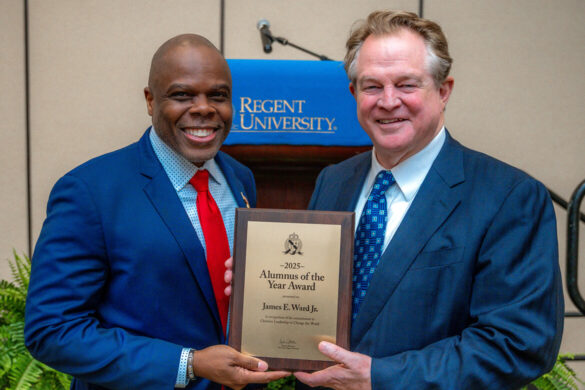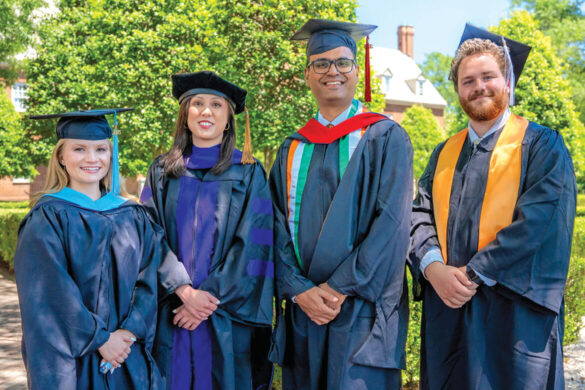Retired Air Force Colonel, Dr. Anderson B. Rowan,
Recalls Service at the Pentagon on September 11
As we commemorated the 20th anniversary of 9/11 in “9/11: A 20-Year Retrospective,” we asked Regent faculty and staff to share how the attacks personally impacted them. One faculty member who grappled with the devastation first-hand is Dr. Anderson B. Rowan, Ph.D., ABPP, a retired U.S. Air Force colonel and the former director for the School of Psychology & Counseling’s Doctoral Program in Clinical Psychology at Regent University.
When American Airlines Flight 77 was hijacked and crashed into the Pentagon, killing all 64 people on the plane and 125 people inside the Pentagon, Dr. Rowan was stationed nearby at Andrews Air Force Base in Maryland.
Rowan, who served as the interim chief of the Critical Incident Stress Management (CISM) team, immediately joined the all-hands-on-deck task of preparing the base hospital to receive casualties. Once it was confirmed that Flight 77 had no survivors, his team relocated to the Pentagon to assist with what had now become a recovery operation. It was the disaster he had dreaded since becoming interim CISM chief, a position that he accepted with some trepidation.
When American Airlines Flight 77 was hijacked and crashed into the Pentagon, killing all 64 people on the plane and 125 people inside the Pentagon, Dr. Rowan was stationed nearby at Andrews Air Force Base in Maryland.
“I was praying that nothing would happen on my watch because I felt woefully unprepared to lead in any major kind of event. I had training in it, but I had no real experience,” Rowan says. “When it came on the news, I thought, ‘Oh no, what am I going to do?’ But then the military training kicked in, and we started figuring out what to do to prepare for casualties.”
Though Rowan had witnessed the devastation at the Pentagon on television, it didn’t make his arrival onsite any less shocking.
His team operated from a tent directly in front of “the enormous crack” in the side of the building. “That plane had barreled through multiple layers of the building, and you just saw this cavity, and smoke was still rising. It was very surreal,” he recalls.
Rowan touched on all the chaos that erupted: “I remember that a helicopter flew over the area where we were working, and people started running away from the Pentagon and climbing over fencing, fearing it would crash into us.”
Rowan codirected teams composed of behavioral health and chapel personnel as they met with thousands of military members and civilians to help normalize reactions and provide interventions and education on coping with the tragedy. After the initial rescue worker interventions ended, he led the team inside the Pentagon to help support personnel who, having survived the attack, continued to work there even as it still smoldered.
Rowan shares that throughout his career, his faith played a critical role: “My faith is hugely impactful across all of the situations I encountered in the military. I wholly believe the Lord gave me the wisdom to make decisions, and he gave me strength, especially when I was working long, emotionally and physically exhausting days, for a straight month.”
In reflecting on his military career and his work at the Pentagon, Rowan says that one of the biggest takeaways for him, which he often shared with junior personnel, was the importance of having confidence that training would kick in when needed. Rowan added that the teamwork displayed at the Pentagon on 9/11 and its aftermath was inspiring and provided a roadmap for handling future crises.
“The combining of chaplains with mental health personnel in that response was incredibly helpful,” Rowan says. “To have us working together to help meet spiritual and psychological needs and capitalize on each other’s expertise was a real success. Working together can be a good thing.”











